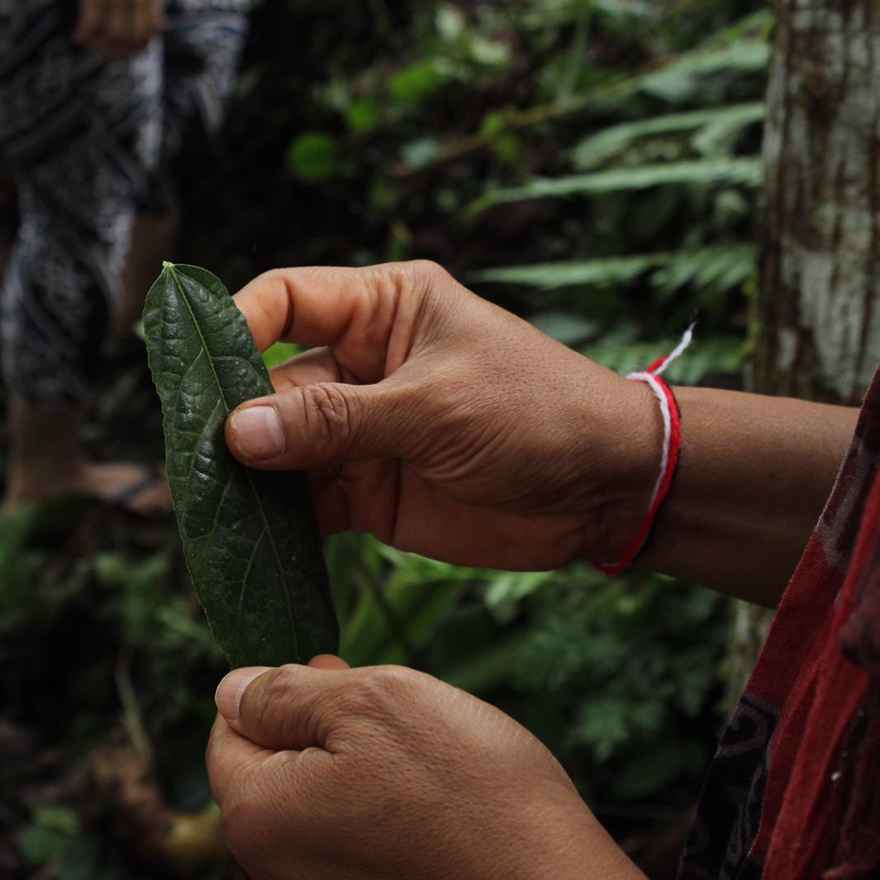One important aspect of indigenous culture is storytelling and passing down knowledge, experiences and traditions from the elderly to the children and youth of the community. Mother Jungle organisation has combined the benefits of both worlds by using the technology of smartphones and video cameras to record indigenous communities stories in Indonesia, focusing on elders and mothers.
Mother Jungle was founded by Sanne van Oort, a Gaia Education Design for Sustainabilitygraduate. The ethos of the organisation lies in the importance of indigenous storytelling in biocultural conservation efforts and supporting intergenerational communication. The aim is to help communities around Indonesia to create short videos of traditional stories about their surrounding land and environment and the beliefs and practices attached to them. Mother Jungle takes cameras and smartphones to the communities and teaches people in the community how to use them in order to capture their story. Digitally storing their stories helps to share the voice of the Indigenous Mother in the midst of our constantly changing society and encourages the communities to hold on to this valuable information.
The current COVID-19 crisis has presented a challenge for many educational bodies from traditional state-funded institutions to organisations offering alternative education. However, people’s interest towards sustainability education and incorporating regenerative practices in their daily lives is on the rise, especially for responsible consumption and production (SDG 12). Our planet’s resources are finite and we as a human species need to change our behaviour towards how we treat our environment.
To respond to this, Mother Jungle developed an online course, in partnership with Gaia Education, called “Food, Forest, Design”. The course was specifically designed to support Indonesian educators to develop a project together with their students to bring back the knowledge about food forests. The goal of the course is to train educators how to teach students to develop a low-maintenance forest that is completely edible, in hopes that it will improve eating patterns in children and their families and bring back the knowledge of how to live with and from nature. The inspiration behind the curricula of the course stems from the quintessential characteristic of storytelling in indigenous cultures and how grandparents and parents would pass down knowledge about different plants; perennials, edible trees, bushes, shrubs, herbs, vines, and groundcovers and their use in cooking and as medicine.
On the path to transforming the world with the Agenda 2030 as our guide, indigenous cultures can act as an enormous source of knowledge, not just in ensuring the continuation of traditions in existing communities but also as a cornerstone of building new sustainable communities as well as transforming existing ones. The “Food, Forest, Design” course targets both SDG 3 (Good Health and Wellbeing) as well as SDG 12 (Responsible consumption and production), the foundation in the creation of sustainable lifestyles, communities and eventually cultures.



0 comments
Leave a comment